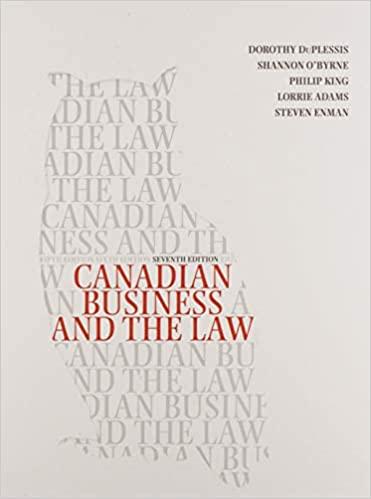In 2010, Frank Stronach relinquished control of auto parts giant Magna International. Since 1978, Magna has had
Question:
In 2010, Frank Stronach relinquished control of auto parts giant Magna International. Since 1978, Magna has had a dual-class, multiple-vote share structure. Through this structure, Stronach was able to control the company despite owning just 0.6 percent of its 113 million shares, because his 720 000 Class B shares each carried 300 votes, while the remaining 112 million Class A shares had one vote each. In return for cancelling the Class B shares, the Stronach family trust received US$300 million in cash and 9 million new Class A shares. In addition, Stronach received a four-year consulting contract and a 27% stake in Magna’s electric car business. It is estimated that the deal was worth $1 billion—an 1800% premium on the value of Stronach’s shares. Seventy-five percent of the Class A shareholders voted for the deal and subsequently the Ontario Superior Court approved the deal. Market reaction to the deal was also favourable—on the day following the announcement of the deal, Magna shares closed up 14% on the Toronto Stock Exchange. What are the problems with dual-class share structures? What are the advantages? Do you think the deal to eliminate the dual-class structure at Magna was fair?
Step by Step Answer:

Canadian Business And The Law
ISBN: 9780176795085
7th Edition
Authors: Philip King Dorothy Duplessis, Shannon O Byrne





